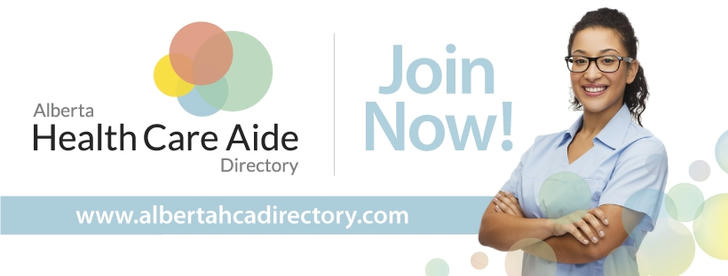Alberta HCA Training: a practical guide for newcomers and local job seekers
Becoming a Health Care Aide (HCA) in Alberta is one of the fastest ways to enter healthcare work on the front line: HCAs assist people with daily living, personal care, and basic clinical supports in long-term care, home care and hospitals. But there are clear expectations: training that matches Alberta’s competency profile and a provincial certification pathway are central.

What you must (generally) have to work as an HCA in Alberta
1.Complete a recognized HCA program at a post-secondary college or training provider that follows Alberta’s HCA curriculum/competency profile. Graduates are prepared to write the province’s final assessment or employer competency checks.
2.Pass the provincial competency/certification assessment (or the employer’s competency process) within the time window set by the program — this confirms the practical skills required on the job. Programs typically include classroom, labs and clinical placements.
Typical program formats & timeframes
🔹Many Alberta college HCA certificates run around 8 months (two terms) when taken full-time (examples: Keyano, Campus Saint-Jean, Lakeland). Part-time, accelerated or blended offerings exist depending on the school.
🔹Programs include in-class theory, simulation/lab skills and supervised clinical placements in care settings so graduates meet the provincial competency profile.
Government-funded training, bursaries and supports
🔸Tuition bursaries for HCA students are offered through provincial programs; a dedicated Health Care Aide Tuition Bursary (administered via NorQuest) is available to eligible applicants — these bursaries can cover a substantial portion of student costs. Check the official bursary portal for current amounts and eligibility.
🔸Alberta’s broader Immigrant Bridging and Training for Work initiatives fund occupation-specific training and help newcomers get credentials and local work experience; recent provincial investments have expanded these supports for in-demand sectors like healthcare. Newcomers should explore immigrant bridging to see if HCA bridging or related training is available in their area.
Pathways specifically for newcomers
🔹Newcomers with previous healthcare experience should consider bridging modules or immigrant-bridging programs that close gaps between foreign credentials and Alberta’s HCA competency expectations. Alberta provides self-study bridging modules to help experienced workers update to the provincial curriculum.
🔹There are workplace and settlement supports (language help, job placement services) tied to immigrant bridging and provincial training funds; these reduce barriers for newcomers who need both skills training and Canadian workplace experience.
Employer-linked routes and “on-the-job” training
🔸Alberta Health Services (AHS) and some rural employers run uncertified HCA training for new hires: if you are hired into a qualifying HCA position, the employer may provide the required training on the job and support you to become certified. This is a common route in remote areas and for staffing needs. Check AHS careers pages for program details and eligibility.
Where to compare program options (examples)
NorQuest College — large HCA program and bursary administrator (online and campus options).
Keyano College — HCA certificate (example program length and clinical focus).
Lakeland College — HCA certificate with provincial exam preparation.
UAlberta Campus Saint-Jean — HCA program and certificate info.
(Each college posts program dates, costs and admission steps on its website — compare intake dates and clinical placement supports.)
Money matters — what to expect
🔸Tuition varies by school and program length. Many students access bursaries, government training funds, or employer sponsorship to reduce out-of-pocket costs; eligibility rules differ, so apply early and check the bursary portal and college financial-aid pages.
Practical next steps — how to get started (quick checklist)
1.Decide how soon you want to start (full-time vs part-time) and search college intake dates (NorQuest, Keyano, Lakeland, Campus Saint-Jean, etc.).
2.Check admission requirements: high-school equivalency or mature student rules, language level, immunizations, CPR, criminal-record check for clinical placements.
3.Apply for bursaries / training funds (NorQuest bursary portal and provincial immigrant-bridging/Training for Work streams if you’re a newcomer).
4.Consider employer pathways: search AHS jobs and local care employer postings that offer on-the-job training for HCAs.
FAQ (brief)
Q: Can newcomers become HCAs quickly in Alberta?
A: Yes — if you qualify for immigrant bridging, bursaries, or employer-sponsored training you can be fast-tracked, but you still must meet the provincial competency expectations and complete required clinical hours.
Q: Is there a single provincial HCA certificate I must get?
A: Alberta relies on recognized HCA programs + a provincial competency assessment model (CAP tool/competency profile). Passing the program and competency checks is the usual route.
Q: Who pays for training?
A: Funding can come from provincial bursaries, immigrant bridging funds, employer sponsorships or student support programs — check the NorQuest bursary portal and your local college for eligibility details.
Final tip
If you’re a newcomer, start by contacting provincial Immigrant Bridging services and a nearby college’s HCA admissions office — they can map your prior experience to bridging modules, tell you what funding you can apply for, and point to AHS or employer hiring routes that include training. That coordination (training + bridging + employer links) is how many people move into steady HCA work in Alberta.
